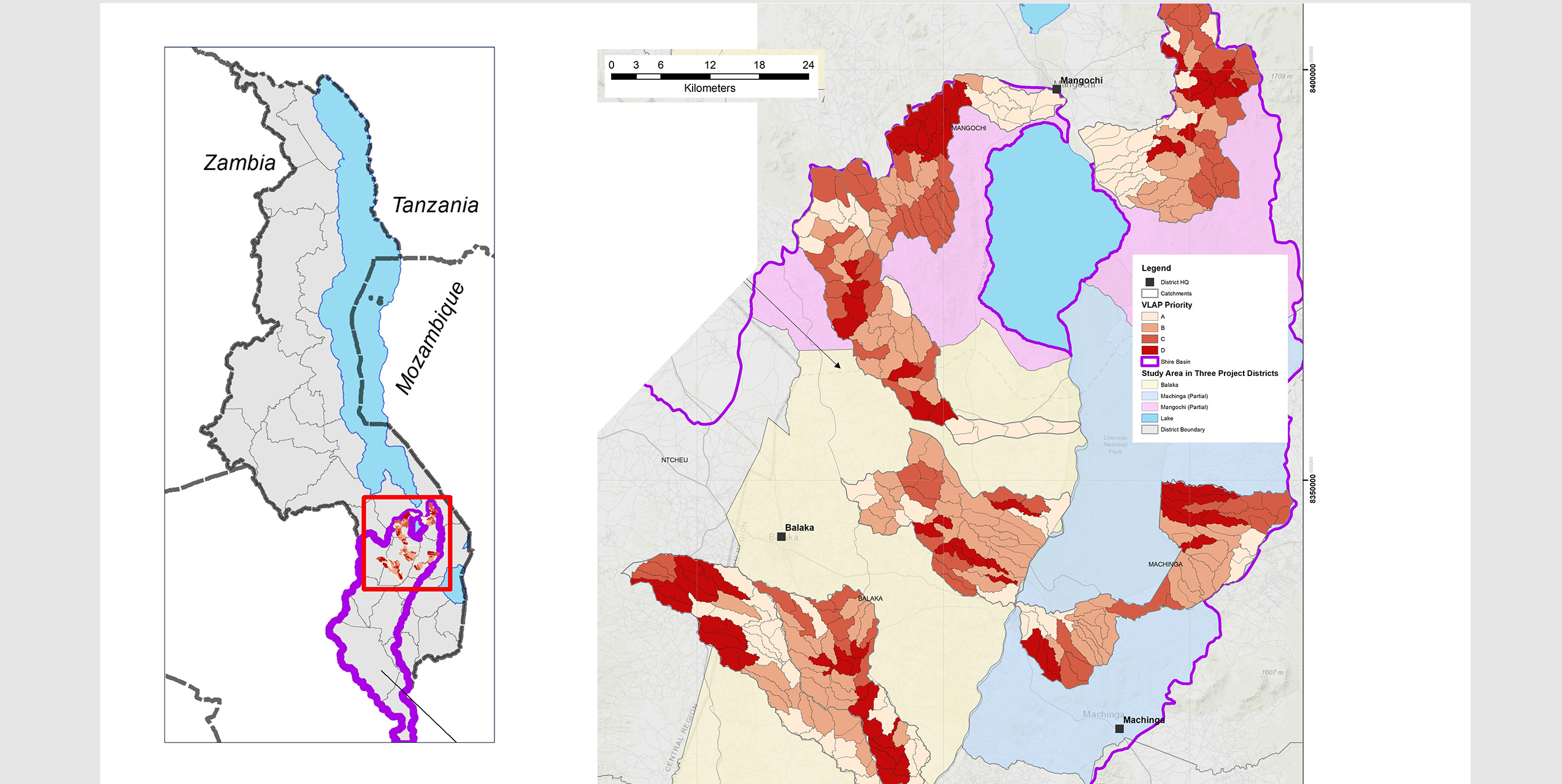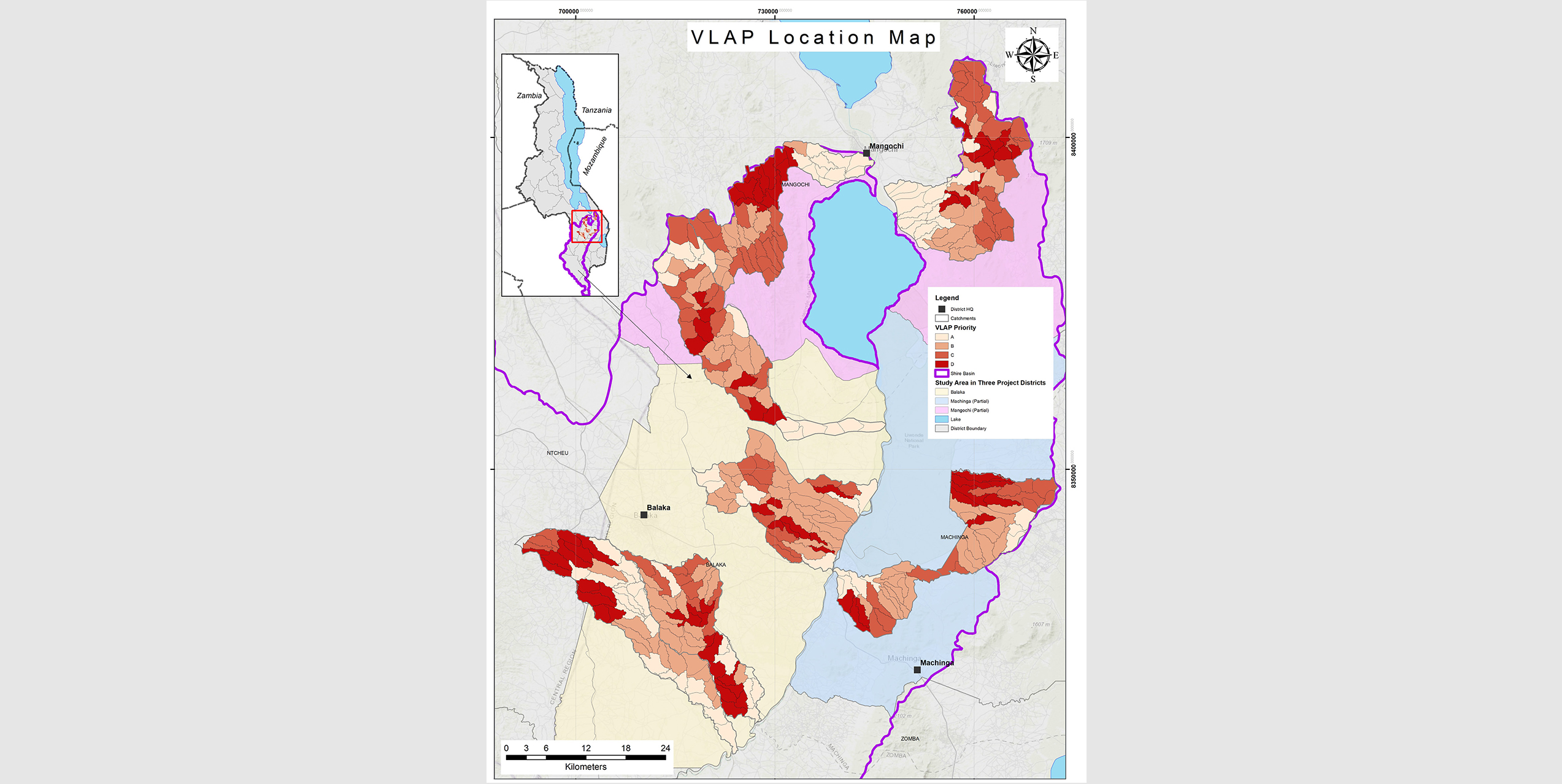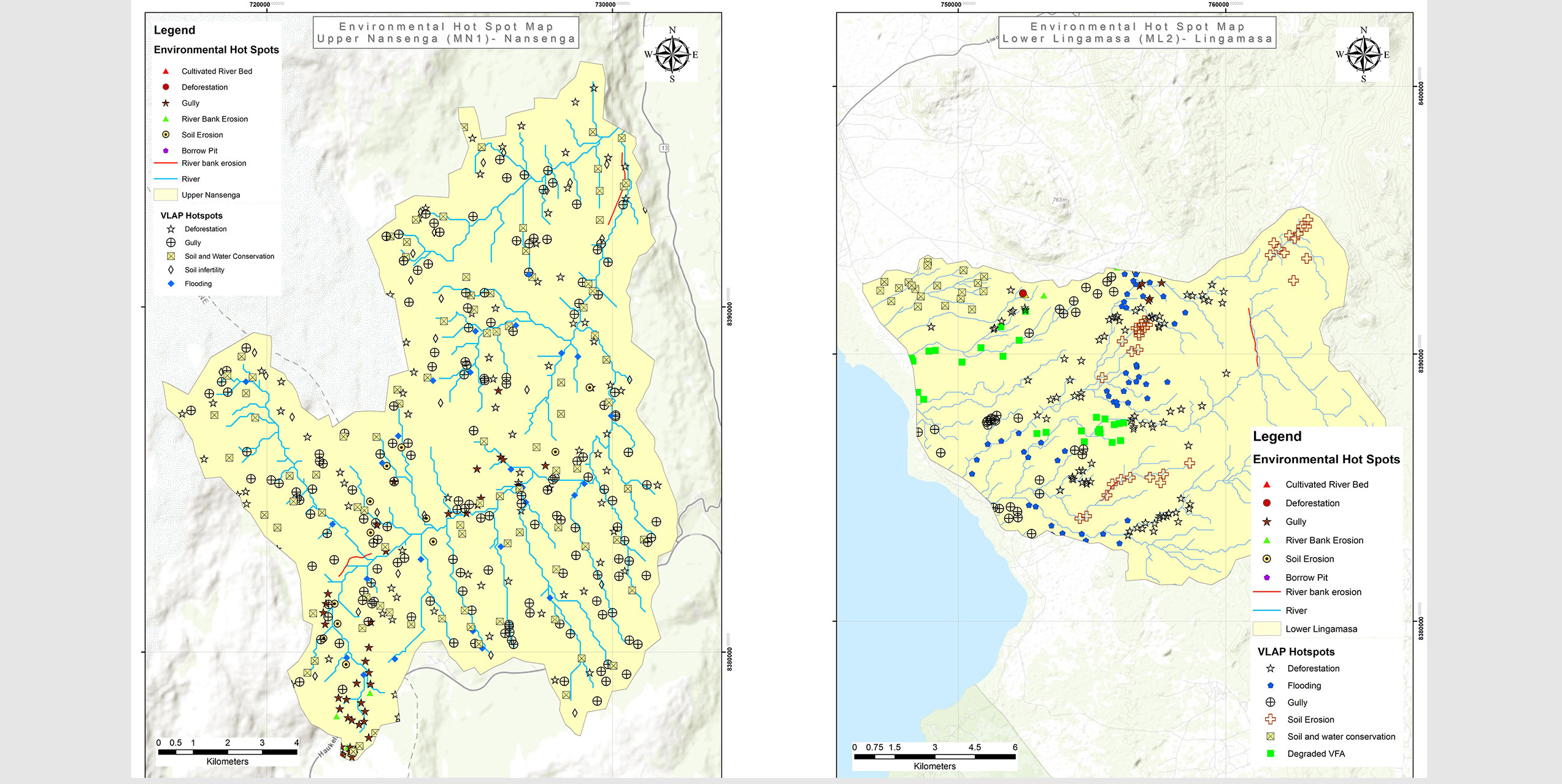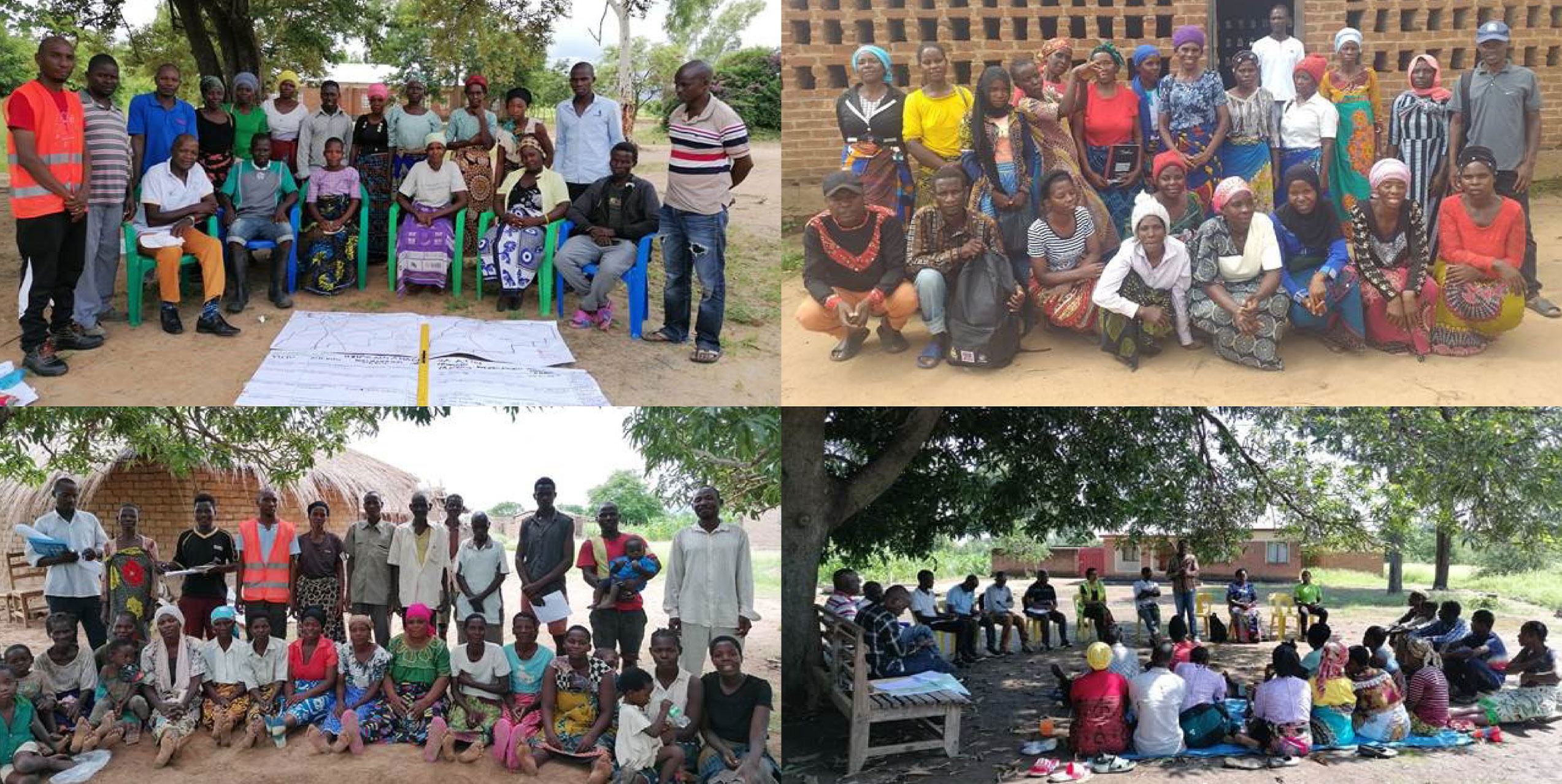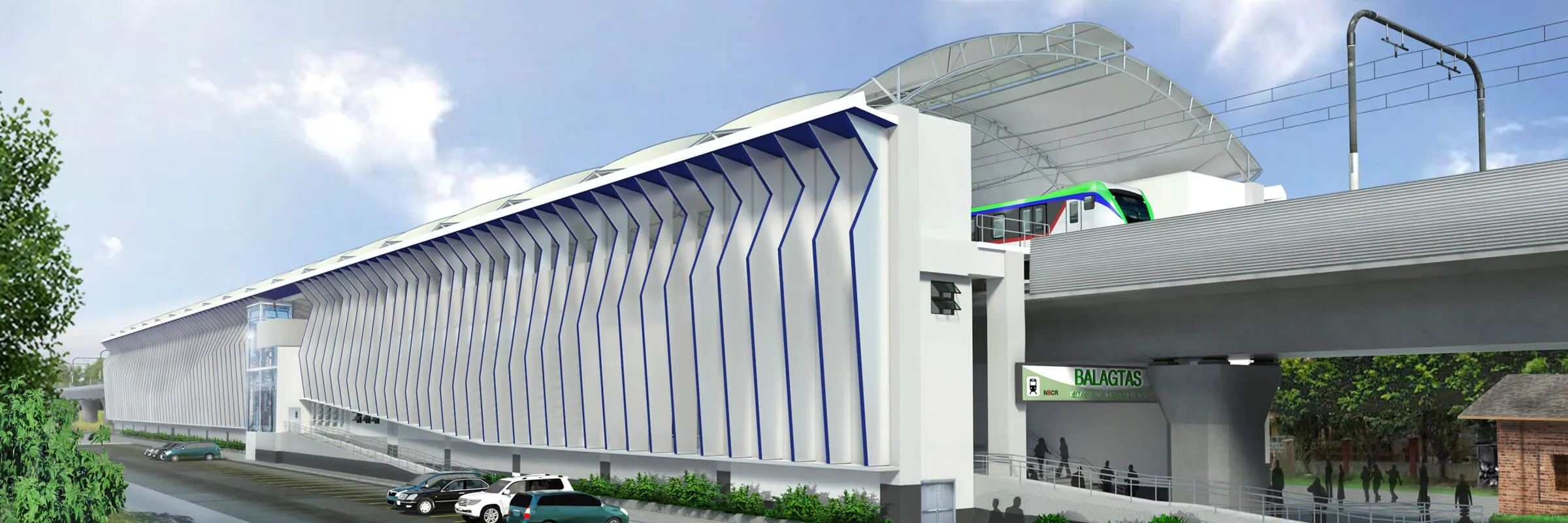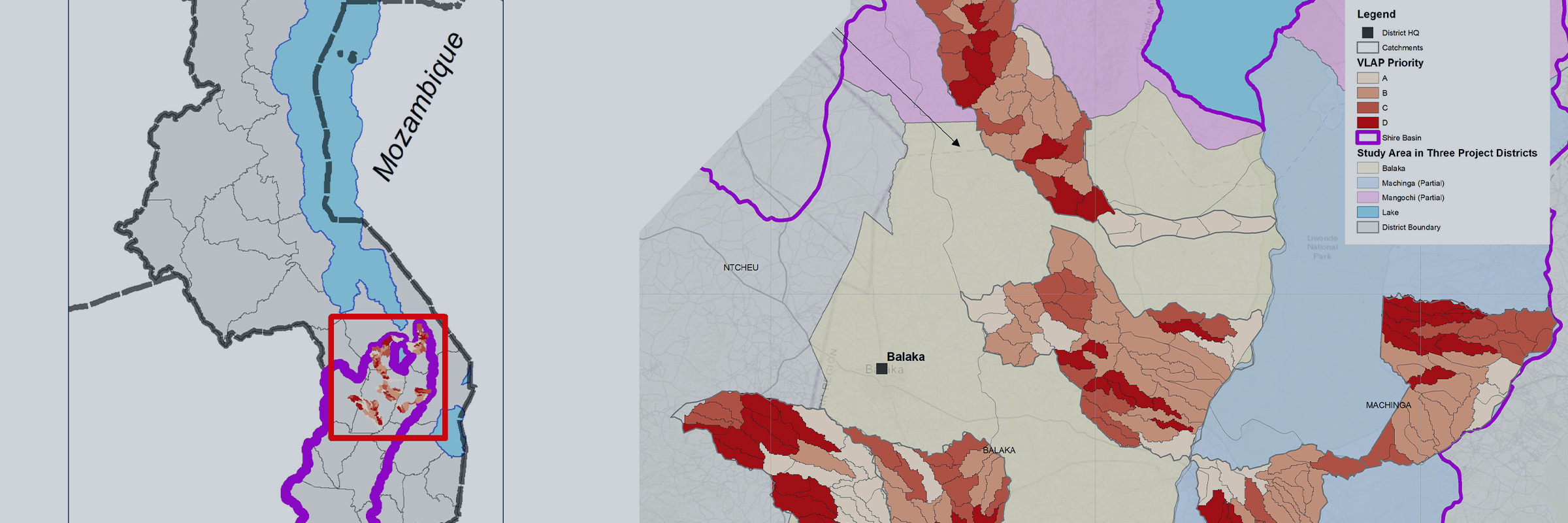

Challenge
The Shire River Basin in Malawi, a vital source of water for agriculture and livelihoods, faces significant challenges. Erratic rainfall patterns, land degradation, and limited water access threaten food security and economic prosperity. Recognizing these concerns, the Government of Malawi, in partnership with the World Bank, launched the Malawi Watershed Services Improvement Project (MWASIP) in 2017.
Solution
MWASIP tackles these challenges through a multi-pronged approach:
- Community-Driven Development: Village Level Action Plans (VLAPs): These detailed plans, collaboratively developed with local communities, identify specific needs and priorities for water management and livelihood development, fostering community ownership and empowerment.
- Sustainable Land Management: Afforestation, contour farming, terracing and riverbank works. These practices mitigate soil erosion, improve water infiltration, and enhance agricultural productivity, safeguarding water resources and building climate resilience.
- Enhanced Water Access and Storage: Strategic investments in small dams, boreholes, and rainwater harvesting systems: These interventions improve water access for communities, particularly during dry spells, supporting crucial agricultural and economic activities.
- Capacity Building and Collaboration: Training programs for communities and local institutions: Equipping stakeholders with the necessary skills and knowledge to manage land and water resources effectively and sustainably. Facilitating collaboration among government agencies, NGOs, and communities: Strengthening institutional frameworks for water governance.
Within the Catchment Management Plans of the Mangochi, Balaka and Machinga districts the following opportunities were identified:
Mangochi opportunities:
- Integrated Aquaculture: Develop closed-loop aquaculture systems to reduce water use and pollution while boosting food security and income generation.
- Forestry and Conservation: Focus on reforestation in degraded areas to combat soil erosion and protect biodiversity, potentially through carbon offset programs.
Balaka opportunities:
- Agriculture: Enhance agricultural productivity through irrigation infrastructure, improved market access, and promotion of drought-resistant crops.
- Floodplain Management: Implement measures like dykes, river banks protection and riparian buffer zones, and wetland restoration to mitigate flood risks and protect agricultural lands.
Machinga opportunities:
- Watershed Protection: Prioritize soil conservation techniques and afforestation in upland areas to safeguard water quality downstream.
- Agroforestry and Cash Crops: Encourage the integration of trees into farming systems to improve soil fertility and promote profitable forest-based value chains including beekeeping and mushroom farming.
Impact
The project’s success lies in its commitment to community-driven development, sustainable resource management, building climate change resilience, and capacity building. MWASIP has already yielded significant results:
- Over 120 VLAPs were developed and implemented, empowering communities to actively manage their water resources.
- Improved land management practices have been implemented across thousands of hectares, leading to decreased soil erosion, and increased agricultural productivity.
- New water infrastructure and initiatives have improved water access for over 100,000 people.
- Increased income generation for communities through diversified livelihoods like beekeeping and farming.
- Strengthened institutional capacity through training and collaboration among stakeholders.
Malawi Watershed Services Improvement Project (MWASIP)
Malawi Ministry of Water and Sanitation
June 2022 – September 2023
Upper and Middle Shire Basin, Malawi
World Bank
